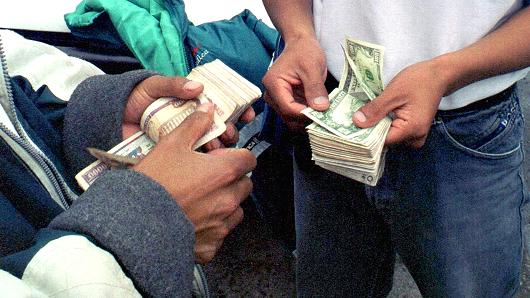Ecuador: the first country with state digital currency

In 2000, for several reasons, Ecuador abandoned its own currency, and switched to American dollars. Fifteen years later, Ecuador is reviving its own monetary system, only no metal coins or paper notes are foreseen - everything will be in numbers.
The new system is called Sistema de Dinero Electrónico (electronic money system), the first time the state introduced it in December, allowing qualified users (a small number of people) to create accounts in the system and work with digital currency like with ordinary money. Now Ecuador, with a population of 16 million, is the first country with a state digital currency and an appropriate payment system.
Other countries, such as Sweden, also use digital money, but in Ecuador, all this is supported at the state level. At the same time, the country's government claims that Sistema de Dinero Electrónico is intended to support the dollar monetary system (the digital currency is tightly tied to the dollar), and not to replace the dollar.
“Electronic money is designed to work and maintain a monetary dollar system,” commented Diego Martinez, an economist and senior official. Martinez also said that according to the laws of Ecuador, economic transactions are conducted in US dollars.
According to the official, electronic money will help save money to the state: the fact is that Ecuador spends about 3 million US dollars annually on the process of replacing old bills with new dollars. It is likely that electronic currency will contribute to less wear of paper notes, provided that residents actively use the electronic system.
Nevertheless, many experts are confident that the new system is aimed at de-dollarizing the economy of Ecuador. In particular, this opinion is shared by Professor of Economics at George Mason University Lawrence White. While the Ecuadorian authorities are not saying anything about avoiding the dollar, this may be implied, since the dollar system has not fully justified itself. And the new digital currency allows the central bank of Ecuador to quickly issue new money not pegged to the US dollar. However, the authorities have several times denied the existence of such plans.
In principle, the dollar system nevertheless helped the country cope with inflation (its level is very low) and ensure a low interest rate. So the transition to a new currency may adversely affect the country's economy, leading to its collapse. Ecuador’s monthly inflation is 3.67%, which is significantly lower than in neighboring Mexico, Chile, Costa Rica and Bolivia.
White also believes that the benefits of using digital currency, if the state is a monopolist in this market, are far from obvious.
However, the introduction of a digital payment system is proceeding quite rapidly. This week, the government of Ecuador announced the signing of an agreement with a large taxi company, which pledged to accept electronic money. The head of the taxi company has already said that he considers the digital system an excellent solution, since drivers do not have to worry about a lot of cash.
The launch of the second phase of the project, when users of the system will be able to choose services and companies whose payments will be made in digital format, will be held in mid-February.
The third phase of the introduction of the electronic money system will be launched in the second half of the year, and its goal is to provide the system users with the opportunity to make mobile payments. The government hopes that in 2015, half a million people will use the system. According to some experts, these hopes are quite real - most likely, more and more people will switch to a new payment system.
Not to be confused with Bitcoin
It is worth noting that back in July last year, Ecuador banned both Bitcoin and other decentralized payment systems and currencies. This was done so that the state system does not have competition. The digital currency of Ecuador itself is very different from cryptocurrencies. The difference is that the state will control the system, this time, and the new currency will be tied to the dollar, these are two.
In fact, Ecuador’s system is similar to Vodafone’s M-Pesa mobile payment service. In any case, some experts think so, including the CoinDesk media editor.
The leadership of the country's central bank said that working with digital currency does not require a mandatory connection to the network. In addition, digital money at any given time can be replaced with real dollars. According to bankers, electronic currency will simplify the lives of ordinary people in Ecuador, since only 40% of the population has their own bank account. And almost every resident has telephones here. At the moment, the government has signed several agreements with major mobile operators in South America.
